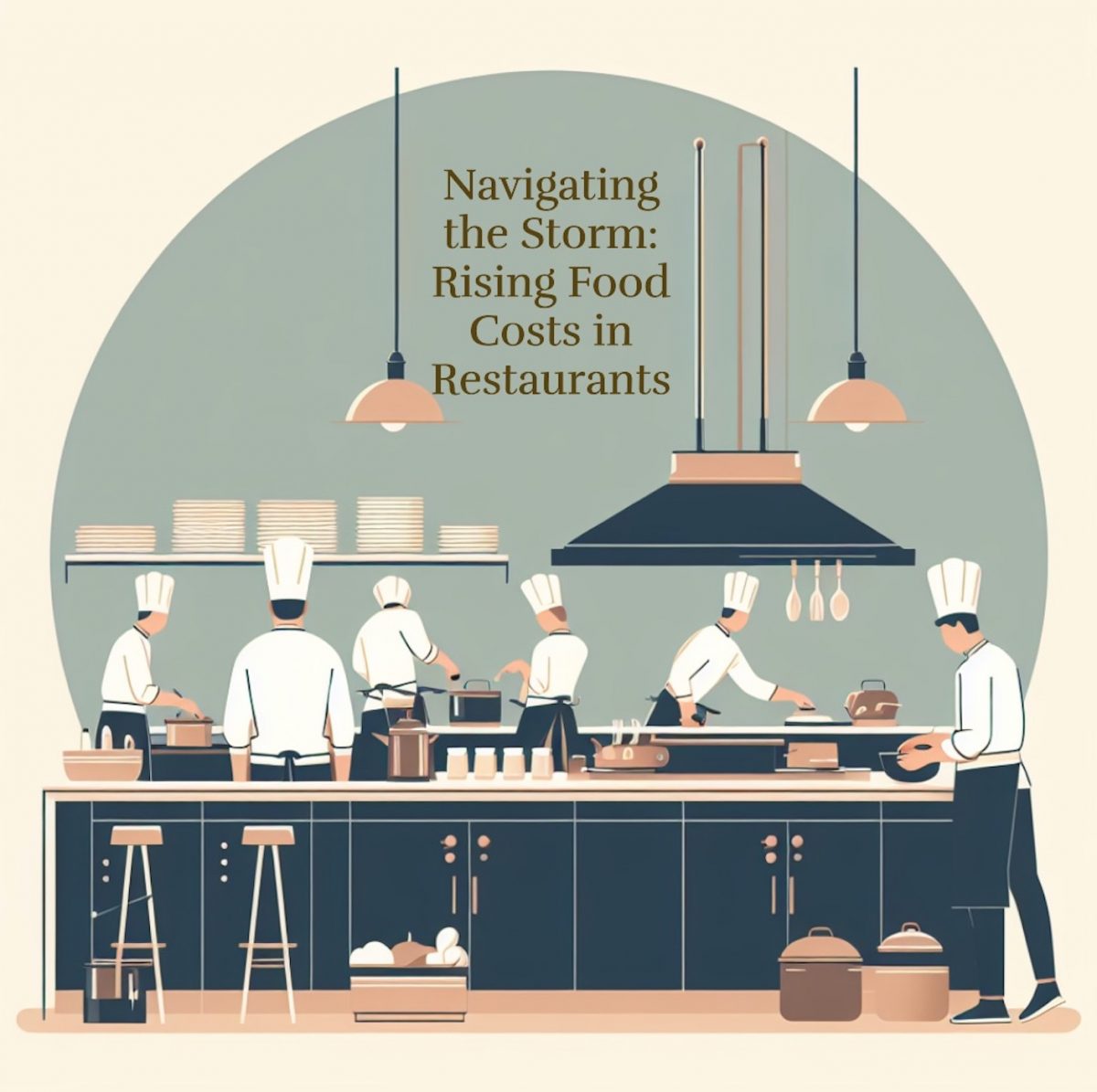The restaurant industry, a vibrant and dynamic sector that has long been a cornerstone of social gatherings and culinary experiences, is currently facing a significant challenge: the relentless surge in food costs. As inflationary pressures continue to ripple through the global economy, restaurant owners are grappling with the need to balance quality, affordability, and sustainability. In this blog, we will explore the factors contributing to rising food costs and how the restaurant industry is adapting to these challenges.
Factors Driving Food Cost Increases
Supply Chain Disruptions: The COVID-19 pandemic exposed vulnerabilities in the global supply chain, disrupting the flow of goods and increasing transportation costs. From farm to table, each stage of the supply chain has been impacted, leading to delays and rising expenses for restaurants.
Climate Change and Agricultural Challenges: Extreme weather events, driven by climate change, have disrupted agricultural production. Unpredictable weather patterns, droughts, and wildfires have affected crop yields, leading to shortages and higher prices for essential ingredients.
Labor Shortages: The restaurant industry, like many others, is grappling with a shortage of skilled labor. From farmworkers to kitchen staff, the demand for qualified personnel has outpaced the available workforce, leading to increased wages, and subsequently raising overall production costs.
Rising Energy Costs: Energy costs are a significant factor in food production and distribution. As the cost of energy, including fuel and electricity, rises, so does the expense of transporting goods from farms to processing facilities and, ultimately, to restaurants.
Adapting to the Challenge
Menu Innovation and Diversification: To maintain profitability without compromising quality, many restaurants are turning to menu innovation and diversification. Chefs are exploring creative ways to use less expensive ingredients without sacrificing taste, offering customers unique and affordable alternatives.
Sustainable Sourcing: In response to both economic and environmental concerns, many restaurants are prioritizing sustainable sourcing. Establishing relationships with local farmers and producers not only supports the community but also helps mitigate the impact of global supply chain disruptions.
Technology Integration: Restaurants are leveraging technology to streamline operations and reduce costs. From automated ordering systems to inventory management software, technological solutions are helping businesses optimize efficiency and make informed decisions about purchasing and pricing.
Transparent Communication: Transparent communication with customers has become crucial. Many restaurants are proactively informing patrons about the challenges they face and the reasons behind potential price increases. This transparency builds trust and helps customers understand the value of the dining experience.
Orca Inventory offers a comprehensive solution to help restaurants control and mitigate the impact of rising food costs. Through advanced inventory management features, the platform enables precise tracking of ingredient usage, allowing restaurants to identify patterns, optimize ordering quantities, and reduce waste. The system’s real-time data analytics provide insights into pricing trends and supplier performance, empowering restaurant owners to make informed decisions about sourcing and pricing strategies. Additionally, Orca Inventory facilitates seamless integration with other restaurant management tools, streamlining operations and enhancing overall efficiency. By leveraging this platform, restaurants can enhance their ability to adapt to fluctuating market conditions, optimize resource utilization, and ultimately maintain a delicate balance between cost control and delivering exceptional dining experiences to their patrons.
Conclusion
While rising food costs present a formidable challenge for the restaurant industry, innovative strategies and adaptability can help businesses weather the storm. By embracing sustainable practices, leveraging technology, and maintaining open communication with customers, restaurants can navigate these challenging times while continuing to provide exceptional dining experiences. As the industry evolves, collaboration among stakeholders, including farmers, suppliers, and consumers, will play a pivotal role in building a resilient and sustainable future for the restaurant ecosystem.
Paul Sofsky
CEO
Orca Inventory


